
Amino acids are the individual compounds that make up all the proteins in both plants and animals. Taurine is one of these amino acids. Most mammals are able to synthesize taurine within their body from other amino acids, but cats cannot synthesize it in adequate enough concentrations, making it an essential amino acid for them. That is, cats need to obtain taurine from their diet.
Taurine can serve a variety of purposes in your cat's body. The main function it's known for is in the aid of retinal function as well as heart function, but it can also help with digestion as well as reproductive development. Cats that aren't getting enough taurine in their daily diet can develop an array of symptoms in relation to these functions. The symptoms won't manifest immediately, but may take anywhere from five months to two years to surface. If your cat isn't getting enough taurine you may see any of the following:
Prolonged retinal degeneration that is left untreated can lead to blindness in your cat. While supplementing your cat's diet with taurine can slow down or even stop the progression of retinal degeneration, it won't reverse any blindness your cat may have suffered before supplementation.
If your cat's taurine-related dilated cardiomyopathy is caught early enough and if it is in turn treated with dietary supplements, the effects can be reversed. If left untreated, though, DCM can lead to heart failure and death.
In pregnant cats, low taurine can lead to smaller litter sizes and smaller birth weights, in addition to other congenital abnormalities. If the kittens are, in turn, fed a taurine-deficient diet, they can have delayed growth and development.
Taurine was first discovered to be an essential amino acid in cats in the 1980s. As such, all commercial cat food has been supplemented with taurine to provide your cat with his/her needed concentrations. Taurine is only found in animal tissue, making cats obligate carnivores.
Pet food companies and researchers discovered that not all of the taurine they put into canned cat food is usable by your cat's body. This is due in part to the heat applied during the processing of canned cat food. The pet food companies have compensated for this by adding more taurine in their wet food formulations than dry food. So long as your are feeding a commercial cat food that is appropriate for your cat's age group (growth, adult maintenance, gestation/lactation) you can rest assured that there is enough taurine in your cat's diet.
It is important to note that when checking for the life stage of your cat's food, you should not rely solely on what is in giant font on the front of the bag, but also rather what the AAFCO statement says. AAFCO is the pet food regulating body and an AAFCO statement is typically found on the back or side panel and near the guaranteed analysis and/or ingredient list. In addition to telling you what life stage the food you is for, the AAFCO statement will tell you if the food has been formulated or if it has been tested.
Formulated simply means the pet food company followed the guidelines put forth by AAFCO to make a pet food for that species and for that life stage. Tested means the pet food company not only followed the guidelines but then also put the food through diet trials to ensure that it was healthy, complete, and safe for your pet to eat.
If you feed your cat a prescription diet, the levels of taurine in the diet are factored into formulating the diet to treat your pet's illness. If you home cook for your cat, you don't necessarily need to add a taurine supplement in if there is adequate taurine levels in your protein source, but review your specific recipe with your vet to ensure that your cat is getting all of the nutrients they need, including vitamins and minerals.
Supplementing your cat's diet with additional taurine isn't always necessary. Again, all commercially available cat foods have enough taurine in them for their labeled life stage. If your cat has a taurine deficiency related illness, your cat may require supplementation in addition to eating an appropriate diet, at least until symptoms dissipate. Supplementation may also be required if the majority of your cat's diet is not from a commercial food.
Supplementing your cat's diet with taurine is relatively safe and supplements are readily available over-the-counter. You always want to check with your vet before starting your cat on a taurine supplement, though. This is because the FDA does not regulate supplements like it does medications, so not all supplements are created equal. Your vet can help point you in the right direction about what taurine supplement to choose.
Taurine is a vitally important amino acid that all cats need in their daily diet. If you have concerns about your cat not getting enough taurine, speak with your vet. They can help you troubleshoot areas of your cat's diet and help answer any question you have about your cat's food.
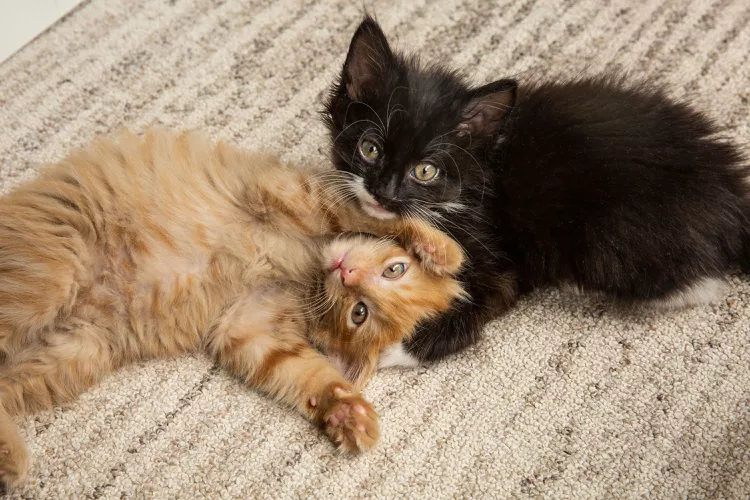
Why Two Kittens Are Better Than One
There are benefits of adopting two kittens, such as more feasible training and companionship between them.
Everything You Need to Know About Raising Your First Cat
Whether you are thinking about getting a cat or just adopted your first one, these are the things to know to make your relationship a lasting one.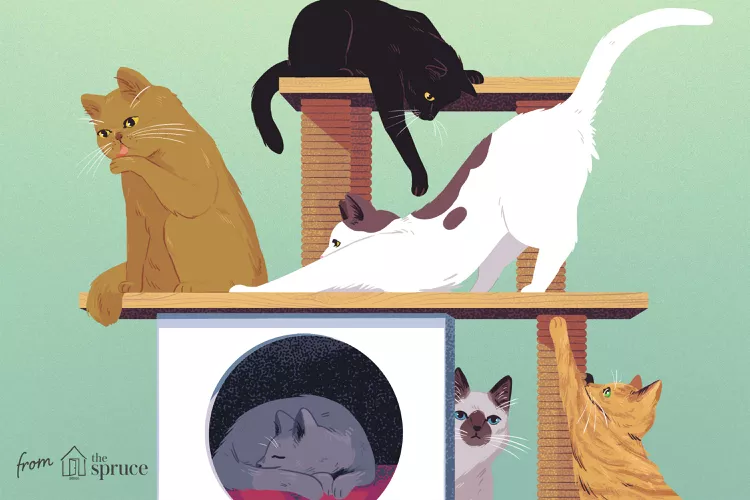
How Can I Tell the Sex of a Cat?
Telling male and female cats apart can be difficult for those who don't know what they're looking for. Here are helpful tips to discover their sex.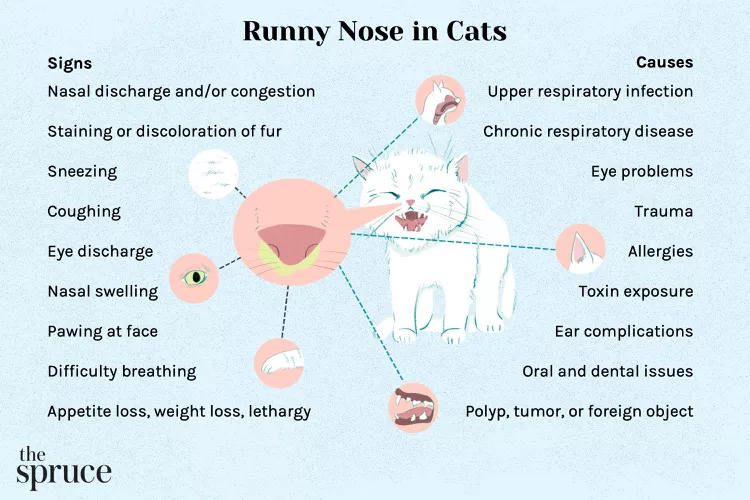
Runny Nose in Cats: Causes and Treatment
Cats get runny noses due to upper respiratory issues, but many conditions can cause this. Learn the causes of runny noses in cats and the associated signs. Find out how vets diagnose and treat cats with runny noses.
How Long Can You Safely Leave Canned Cat Food Out?
You cannot safely leave canned cat food out all day. Twenty to 30 minutes is the max, so give smaller portions and reheat food for later feedings.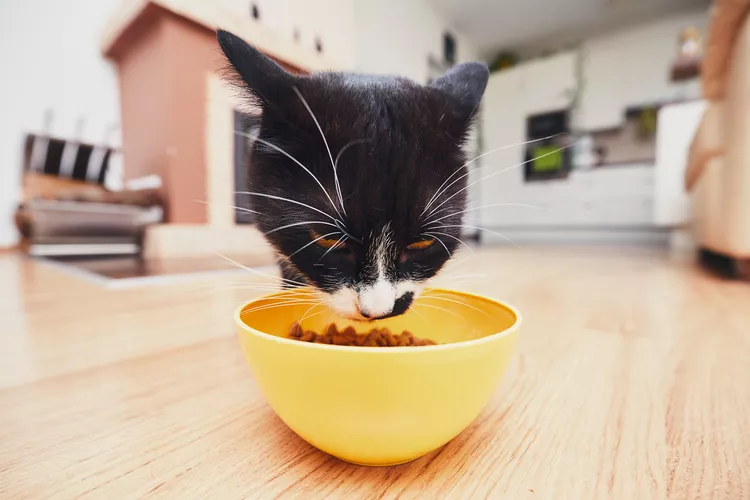
Meat Byproducts in Cat Food
Most cat experts recommend premium brands of cat food that avoid ingredients like byproducts and chicken meal. Learn what to look for on the label.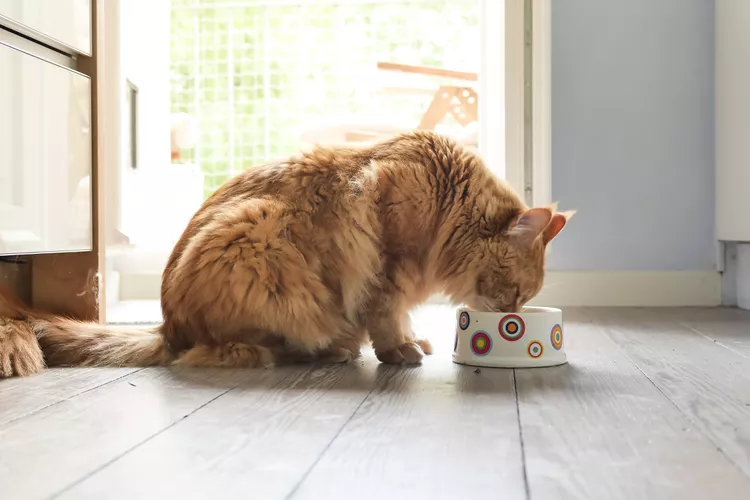
How Much Wet Food to Feed a Cat Every Day
The amount of wet food your cat needs depends on factors such as age, weight, body condition, and lifestyle. Learn how much wet food to feed your cat.
Taurine for Cats
Taurine is an essential animal protein in your cat's diet. Learn more about the various ways it supports your feline's body.
The Different Types of Pet-Friendly Workplaces
Discover the different types of pet-friendly workplaces and the benefits they offer employees. Learn how to create a pet-friendly workplace and the best practices for pet owners.
8 Halloween Safety Tips for Pets
The spooky holiday can be overstimulating and even dangerous for pets. Here's how to avoid the problems caused by toxic candy and incessant doorbells.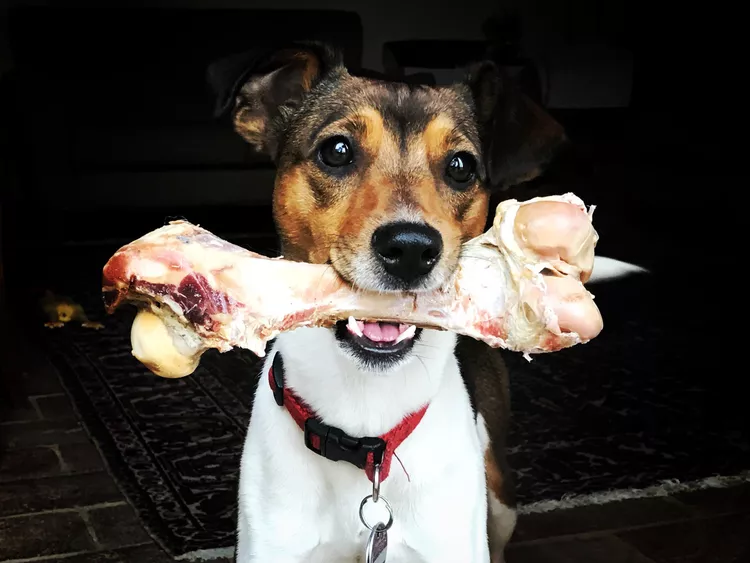
Why You Should Keep Cooked Bones Away From Your Dog This Holiday Season
People should be aware of the dangers of cooked bones, especially around the holidays when they might be more accessible to your pup.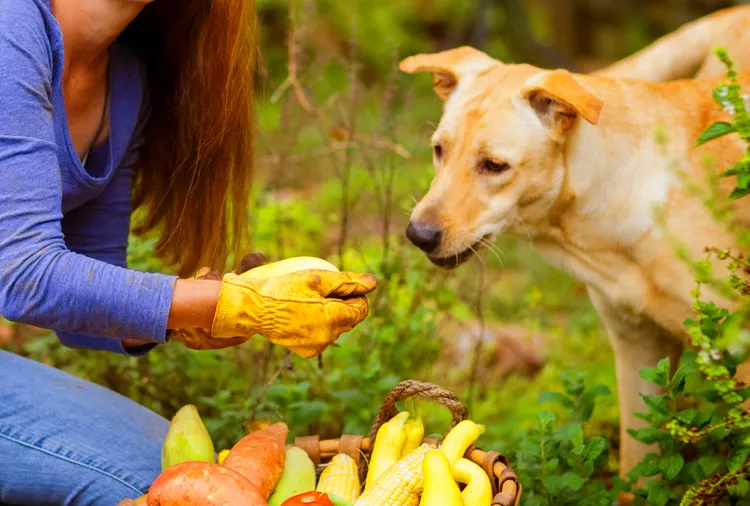
Can Dogs Eat Squash? Here's What a A Vet Thinks
Dogs can safely eat squash as long as it's prepared correctly. Find out how to properly feed this versatile fruit to your dog.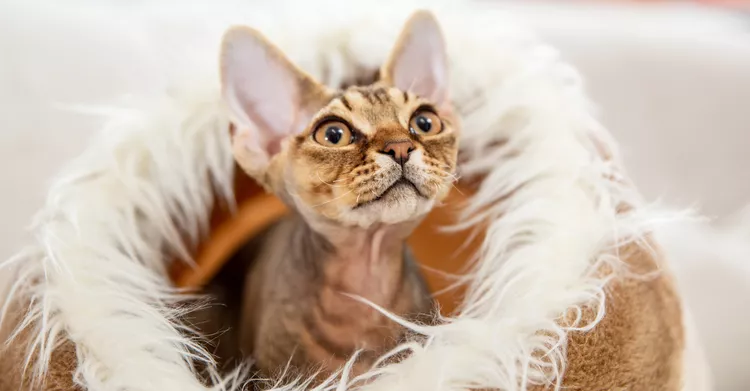
16 Small Cat Breeds That Are Petite Purring Machines
Small cat breeds like the Singapura and munchkin may be smaller than an average housecat, but they leave a giant imprint on your heart.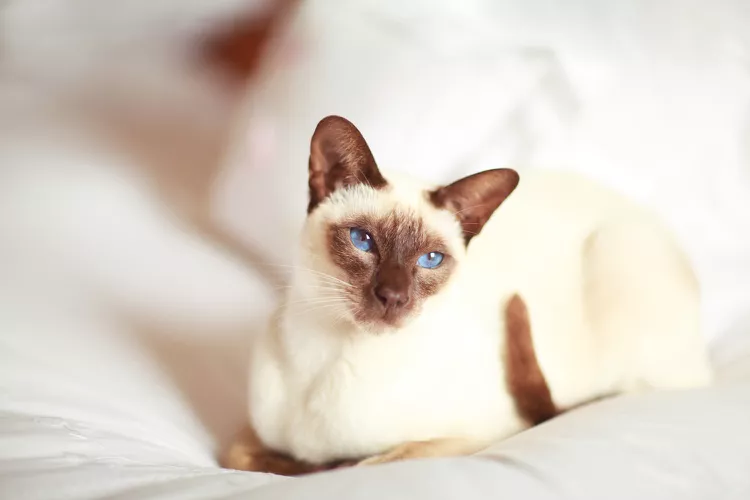
10 Best Cats With Big Ears
Cats with big ears often look extra endearing. Check out some common big-eared cats, including the Abyssinian, Devon Rex, Siamese, Sphynx, and more.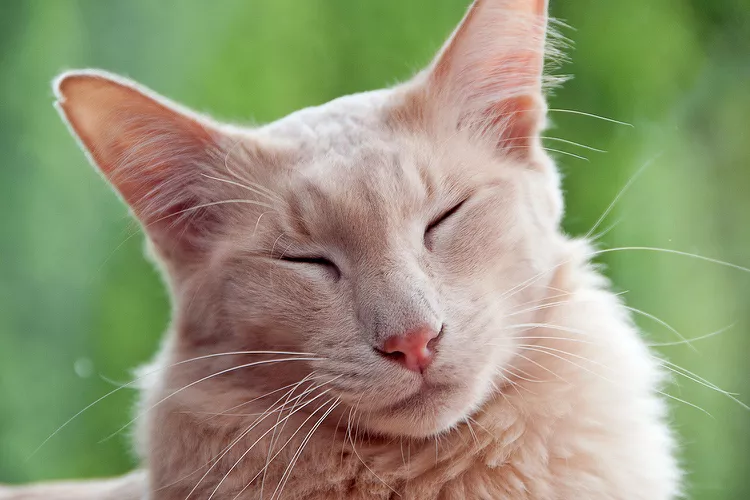
Javanese (Colorpoint Longhair): Cat Breed Profile, Characteristics & Care
The Javanese is a semi-longhaired, color-pointed cat of Siamese type. They are related to the Siamese, Colorpoint Shorthair, and Balinese breeds.
How to Stop Aggression in Dogs
Dog aggression can be a serious behavior issue for pet owners. Learn how to stop aggression in dogs before someone gets hurt.
Should Dogs Be Allowed on Furniture?
Should you let your dog on the couch or in the bed with you? Are there any reasons we should not let dogs on the furniture? Here's what to know.
Why Do Dogs Eat Rocks?
One of the most common non-food items for dogs to eat are rocks. Here's what to know about why dogs eat them and how can you stop your dog from eating rocks.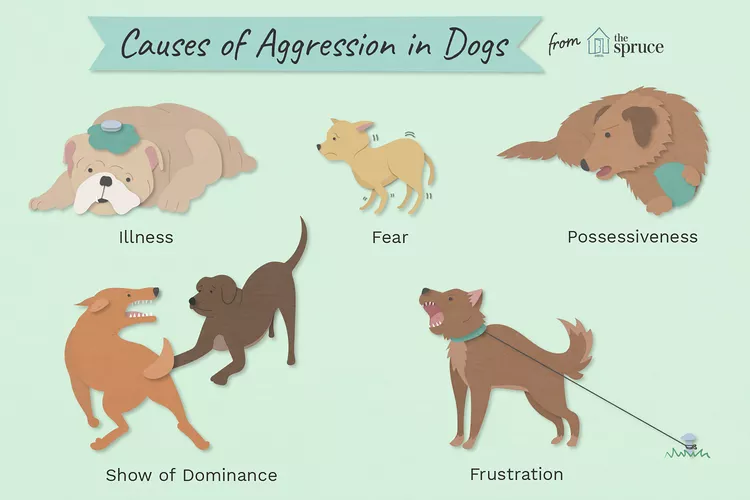
Why Dogs Get Aggressive and How to Stop It
Why is your dog biting you aggressively? Sometimes dogs can become aggressive with little warning. Find out what causes your dog to become aggressive so you can work with the behavior.
Thai Ridgeback: Dog Breed Characteristics & Care
Learn all about the Thai Ridgeback, a rare breed from Thailand. Find out how to care for the loyal dog and where to buy or adopt one.